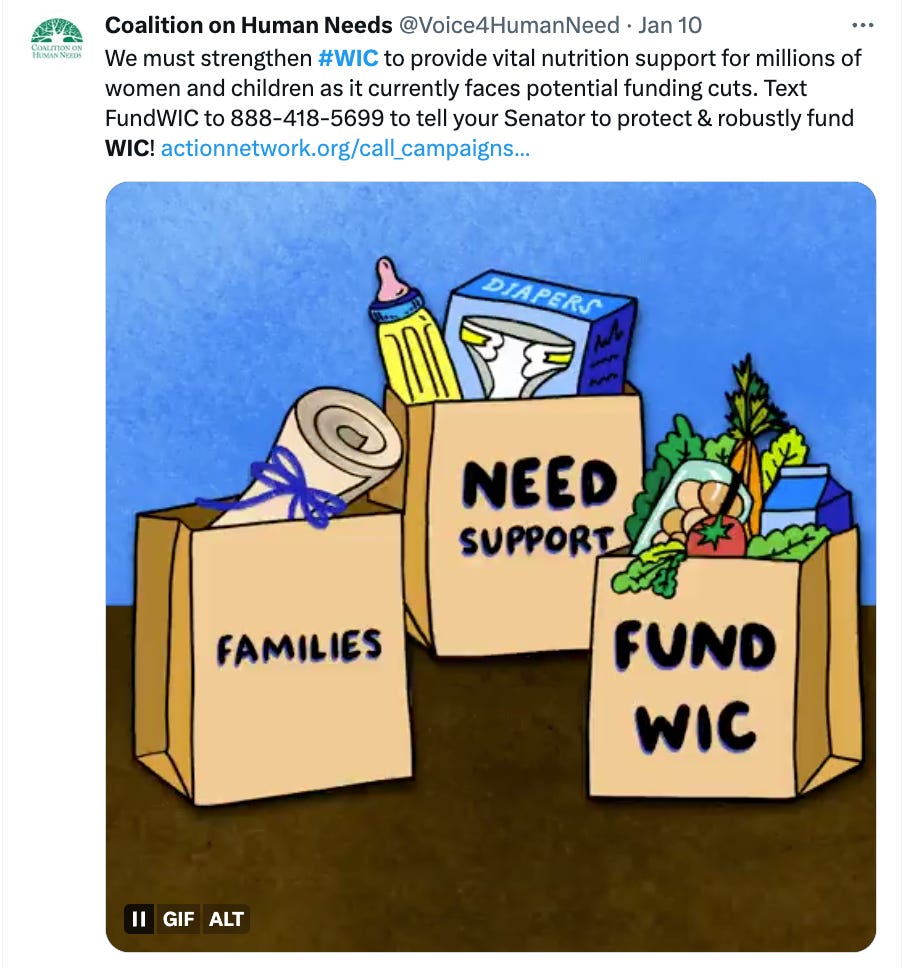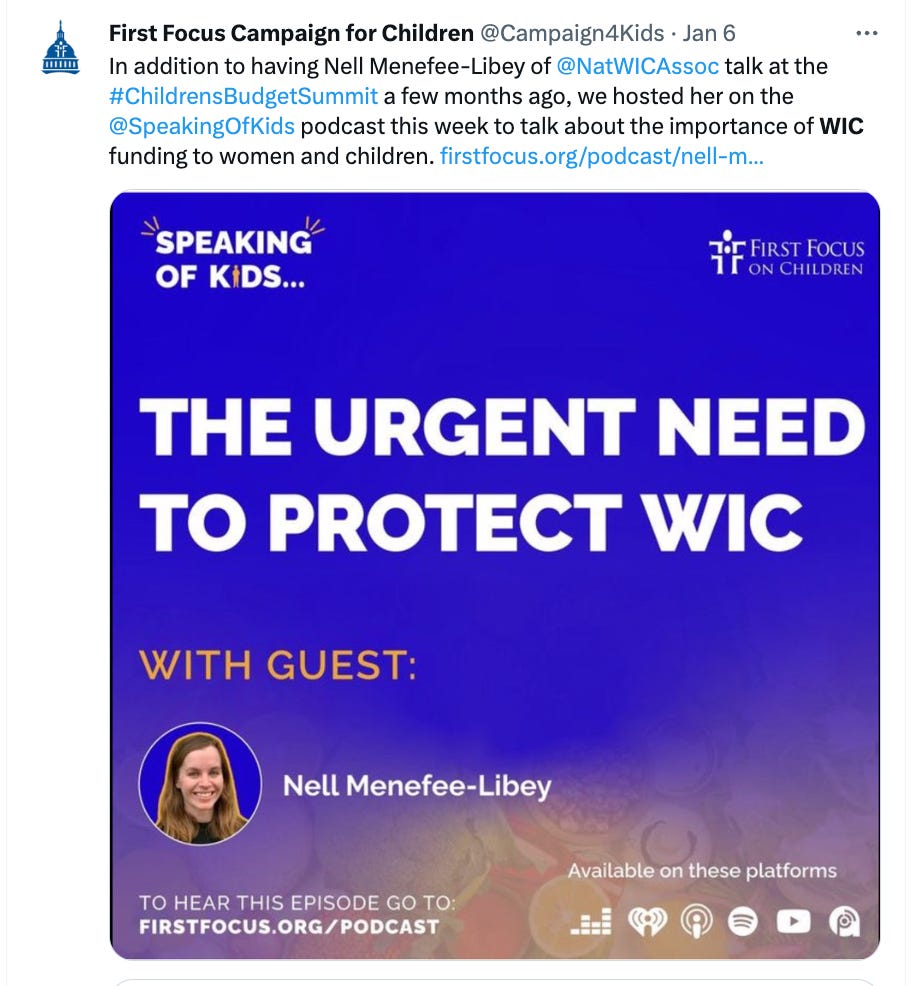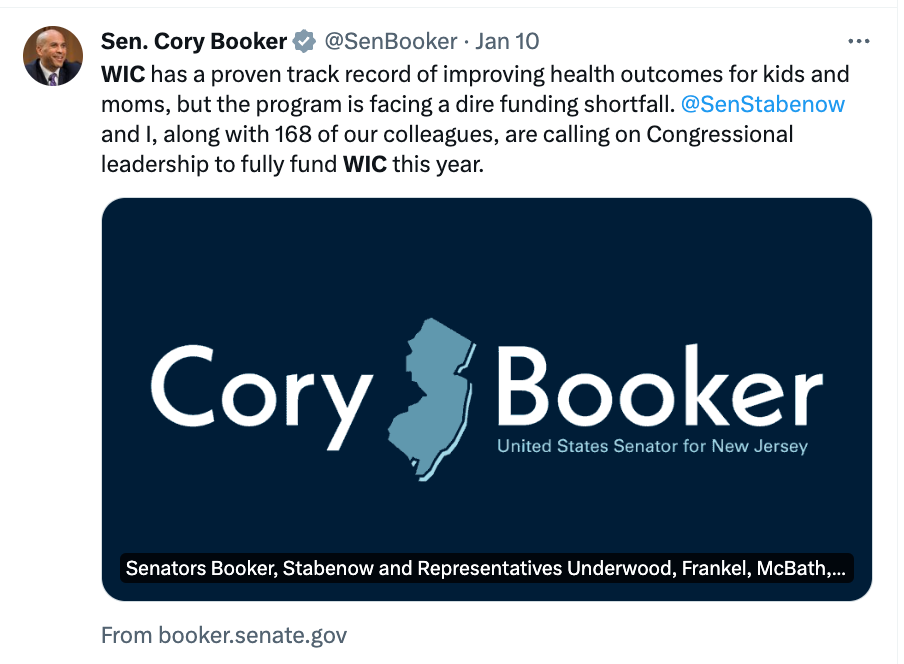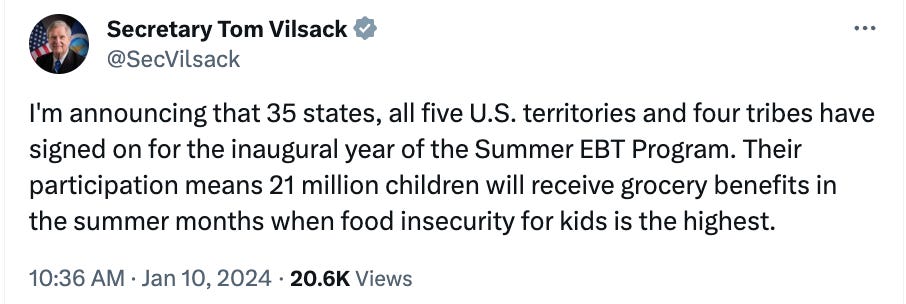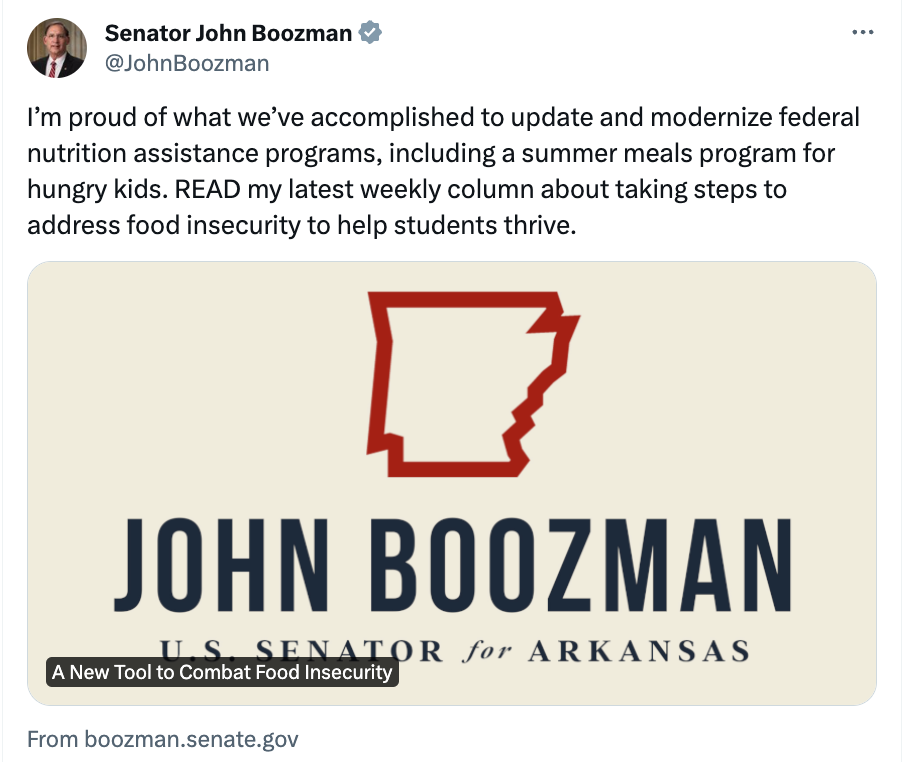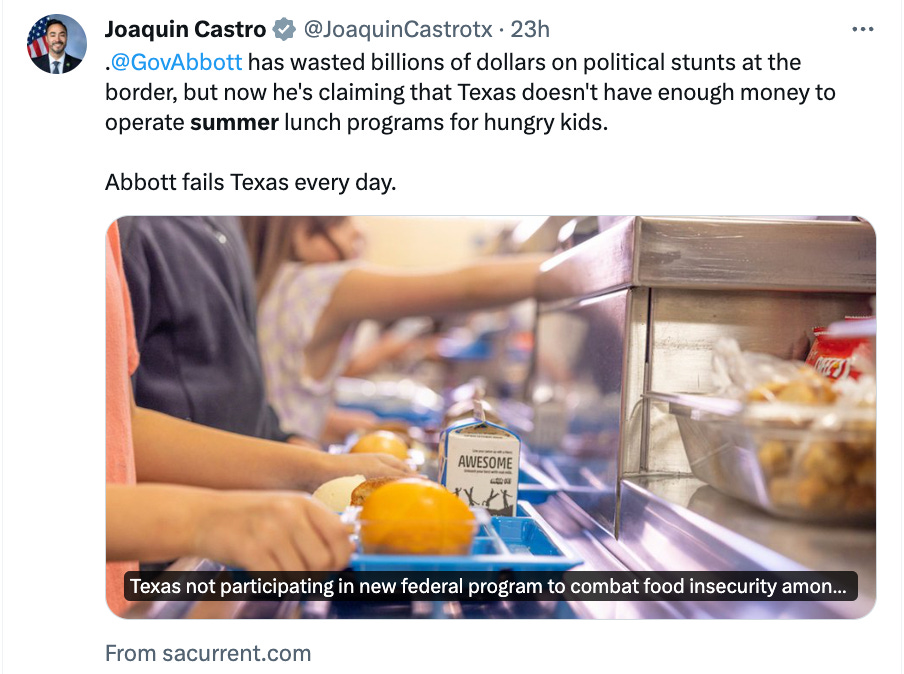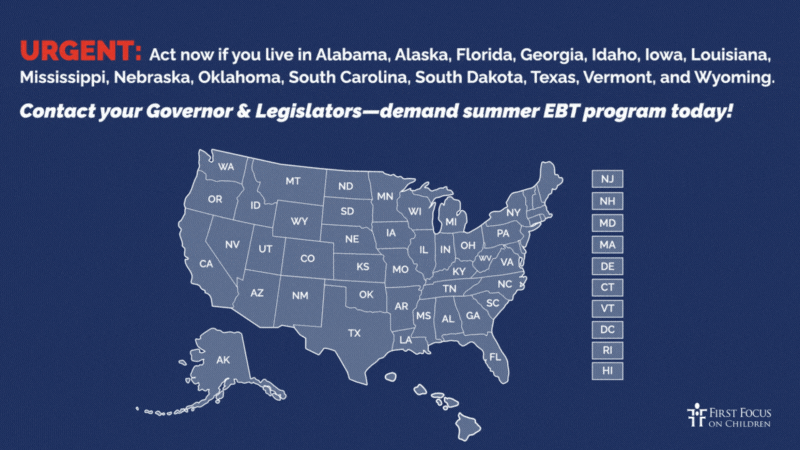
Child hunger does not have to exist. Incredibly, policies that could keep children from going hungry are staring lawmakers at the federal and state levels in the face, and yet, they are failing to act and failing kids.
Congress Should Enact an Expansion of the Child Tax Credit
First, in 2021, Congress failed to extend the improved Child Tax Credit, and this contributed greatly to the increase in child poverty from 4 million, or 5.2%, in 2021 to 9 million, or 11.4%, in 2022. This has led to an increase in food insecurity, particularly among our nation’s children. In fact, according to survey data from the U.S. Census Bureau at the close of 2022, the U.S. Department of Agriculture reports:
Children and adults were food insecure at times during 2022 in 8.8 percent of U.S. households with children, up from 6.2 percent in 2021 and 7.6 percent in 2020.
Congress should extend the Child Tax Credit and commit to a goal of dramatically reducing child poverty in this country. Senate Finance Committee Chair Ron Wyden (D-OR) and House Ways and Means Committee Chairman Jason Smith (R-MO) have reached a tentative tax deal that includes an enhanced Child Tax Credit that will take a step toward beginning to reverse the recent increase in the child poverty rate. However, it faces some opposition and procedural hurdles that make its passage in Congress challenging.
A fully refundable Child Tax Credit would substantially help reduce child hunger, and we must strive to make the passage of H.R. 3899, Rep. Rosa DeLauro’s (D-CT) “American Family Act” (209 House cosponsors), or S. 1992, Sen. Sherrod Brown’s (D-OH) “Working Families Tax Relief Act” (42 Senate cosponsors), a reality as soon as possible.
Congress Must Fully Fund WIC…NOW!
Second, for more than a quarter of a century, Congress has adhered to a bipartisan agreement to fully fund the Special Supplemental Program for Women, Infants, and Children (WIC). As First Focus Campaign for Children, the Child and Student Nutrition Alliance, Hunger Free Colorado, the National Association of Pediatric Nurse Practitioners, the National League for Nursing, and UnidosUS explain:
For over fifty years, the WIC program has been one of the most essential federal programs in giving low-income pregnant women, postpartum and breastfeeding individuals, infants, and children at nutritional risk a better start in life. WIC provides over 6.7 million mothers and children access to nutritious foods, counseling on healthy eating, and breastfeeding support. A vast body of research confirms that properly nourishing children not only have better health outcomes but more actively participate at school, and have better focus and information retention.
Unfortunately, WIC is facing a $1 billion shortfall this year and state programs are borrowing against themselves to meet the program’s needs. WIC desperately needs congressional action, or an estimated 2 million pregnant women, infants, and toddlers could be turned away from services this year.
We were pleased to host Nell Melefee-Libey from the National WIC Association to discuss this problem on a recent Speaking of Kids podcast.
🎧 Listen to Speaking of Kids Podcast Episode #7, “The Urgent Need to Protect WIC,” with the National WIC Association’s Nell Menefee-Libey here.
Fortunately, there is a push in Congress to address this problem, as this letter led by Sen. Cory Booker (D-NJ), Senate Agriculture Committee Chairwoman Debbie Stabenow (D-MI), and 168 of their colleagues expressed in this letter.
A fully funded WIC program would reduce and prevent child hunger, particularly among our nation’s babies and toddlers.
States Should Adopt the Summer EBT Program for Children
Third, a lesson learned from the response to the COVID-19 epidemic was the successful creation of a summer debit card program (electronic benefits transfer or EBT) that was provided to families with children to reduce child hunger during the summer months. As part of the 2022 bipartisan budget deal, a summer EBT program was established and made available to states.
One of the bipartisan leaders in establishing the summer EBT program was Sen. John Boozman (R-AR). His weekly column below highlights how this summer program will help children.
This bipartisan deal is critically important because, as Share Our Strength’s No Child Hungry finds, “6 out of every 7 children who participate in free or reduced-price school meals” were unable to access prior summer meal programs. The bipartisan deal provides full federal funding to states for the summer EBT program. All states have to do is agree to pay for half the administrative costs.
Yet, as the Washington Post’s Annie Gowen reports, 15 Republican governors have rejected this bipartisan program and needlessly caused increased child hunger for up to 10 million children in their states this coming summer. She quotes Stacy Dykstra of the Regional Food Bank of Oklahoma saying:
It’s just heartbreaking. Many children this summer won’t have access to the food they need. It is really scary and gives me goosebumps just saying it out loud to you.
To help alleviate child hunger:
- Please contact your member of Congress and two senators and urge them to pass an expansion of the Child Tax Credit and to provide “full funding” for WIC.
- If you live in Alabama, Alaska, Florida, Georgia, Idaho, Iowa, Louisiana, Mississippi, Nebraska, Oklahoma, South Carolina, South Dakota, Texas, Vermont, or Wyoming, contact your governor’s office and legislators to urge them to adopt the summer EBT program.
No child should go hungry.


